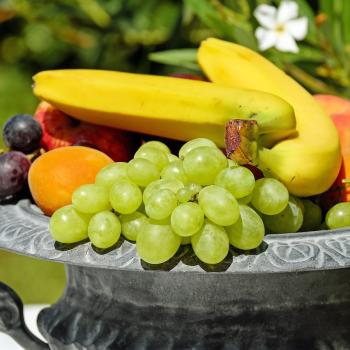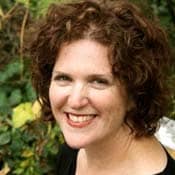A Protestant confession: I have a fascination with Mary, the Mother of Jesus.
A few years ago, I told my spiritual director how two icons were central for me. Rublev's icon of the Trinity hung on my bedroom wall along with The Christ of Sinai. The Trinity reminded me of my central conviction that God is community and always inviting us into a holy feast of communion. The two sides of the Christ of Sinai's face expressed the truth-telling love of Jesus, drawing me into an unconditional love that sees all of me.
"You are missing one," Father Tom said.
The missing icon was one of the Virgin Mary. Raised Baptist and now Presbyterian, I had focused mostly on Jesus and the Trinity. I wasn't sure what to do with Mary.
Father Tom explained that Mary is Theotokos in the Greek church, the one who gives birth to God. The mystery of what it means to give birth to God was a mystery I needed to wrestle with. It is at the heart of spirituality, growing into a union with God that is as deeply connected as giving birth to a child.
In the swirl of controversy around the formation of the Nicene Creed, the discussion was heated over whether Mary was actually carrying God in her body. When did the divinity of Christ begin and could that divinity reside in a human body, fed and nurtured through an umbilical cord? Could that tiny form of God in a fetus actually reside in a woman?
It was determined that the incarnation was a central tenet of Christian faith. God comes into this world and becomes a part of it. The way we know that is through a young woman, an immigrant in an occupied land, pregnant before she was married, a person with no rights and no power who gave birth to God.
When my first daughter was born, I was surprised at our connection. I would wake up just moments before she began to cry. Our body rhythms mirrored each other for weeks. She had been a part of my body for nine months and though she was now outside of me, she and I remained tied together not just by affection but our very physical reality.
Incarnation works in a similar way. God is simultaneously other than us and within us. Much of religion and theological study (in the West especially) has focused around the God other than us, the mystery we can never comprehend. But from Mary, we know that God is also within us, inseparable from our body, soul, and spirit.
Mary teaches us incarnation is a two-way process. When informed of the great mystery that God would be birthed from her, she opens herself up to the reality. "My soul glorifies the Lord and my spirit rejoices in God my Savior, for he has been mindful of the humble state of his servant." She is a knowing and willing participant in the reality of God's birth within her.
The spiritual journey is the same for us. God is within us, waiting to be born. God is outside of us, asking for our openness. We open our spirits to this great mystery and discover that we also are God-Bearers.
How do we bear God? The beauty of the incarnation is its particularity. It shows up in our individual lives, in our stories, our pain, our joy, our unique ways of being in the world. Incarnational spirituality is not working up the strength to become someone you aren't; it is becoming who you truly are.
I recently led a workshop on vocation. We took a personality test of sorts. The premise behind this test is that our culture is obsessed with stories of overcoming deficiencies. The awkward and non-athletic player makes the winning touchdown. The shy quirky girl becomes the graceful well-spoken princess. We love these stories, but they lead us to think success comes by overcoming weakness instead of building on strength. We focus on weakness and ignore the strengths we already possess.
Giving birth to God begins in the spaces where we are, not trying to work up the energy to be where we aren't. We don't grow out of guilt or obligation. Transformation occurs when we know we are loved and enough in this moment. It is what we possess now that is the body out of which God is birthed.
"The day of my awakening was the day I saw and knew I saw all things in God and God in all things," said Mechthild of Magdeburg. The God-Bearer lives with a growing sense of this reality, leaving behind the voices of "should" and "not-enough" to allow God to be born right where they are.
12/5/2011 5:00:00 AM





